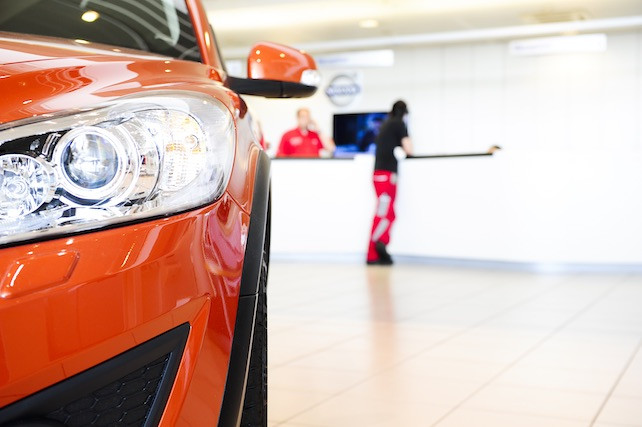In 2017, a total of 136,558 vehicles were registered in the grand duchy, which is 4.5% more than in 2016, according to the SNCA, the outfit which handles vehicle registrations.
If we add the presentation of 30 new models by 56 brands and the €2,500 tax deduction for plug-in hybrid vehicles (as of 1January 2018), then the festival’s two organisers--the automobile distributors association Adal and Fégarlux, Luxembourg’s federation of garages--have good reason to be optimistic for this year’s edition.
Unlike neighbouring countries, where car brands are all held together in one massive event in a massive venue (such as the Geneva Motor Show in March or the Brussels Motor Show that happened in the beginning of January), the ten-day Luxembourg Autofestival takes place throughout the country in 90 garages, with a cumulated showroom surface of around 60,000 square metres.
It is, of course, the best opportunity for potential customers to take test drives and negotiate good deals. The Autofestival is absolutely vital for local garages as they usually manage to sell a third of their annual sales during this short period of time. Adal states that more than 18,000 vehicles will be bought, which equates to 1,800 purchase orders every day.
What car should you be looking for? But most importantly, what kind of engine should a future buyer choose? Between petrol, diesel, electric, plug-in hybrid, hybrid, natural gas and hydrogen? The supply is plentiful and complicated but in the end, it all depends on how you use your car.
As an example, if you drive less than 20,000km a year, mainly short or medium distances, and if you live in an urban environment, it is better to avoid diesel engines, as they are especially adapted for long distance driving on motorways. Diesel cars have recently got into trouble with scandals (such as the Dieselgate) where the real exhaust emissions were nowhere close to the ones indicated by the car makers.
As a result, there has been a noticeable decline in diesel sales in Luxembourg. Of the 52,775 new cars sold in 2017 in Luxembourg, 53.9% were diesel cars. That’s 10.8% fewer diesel-powered cars than a year ago, and 16.8% less than in 2015. Sales of petrol cars grew steadily, with 42.4% of cars sold last year running on petrol. That’s 9% more than last year and 20% more than in 2011.
How about electricity as a mean of propulsion? There are certainly starting to be appealing options, with brands such as Tesla introducing full electric vehicles that have decent autonomy and incredible performances. Same with hybrids and plug-in hybrids, cars that retain a petrol-powered power plant, but will be using electricity to lower the usage of its internal combustion engine. Some manufacturers such as Toyota have been using these techniques since the end of the 20th century with great reliability records. Just ask the taxi drivers around town, a lot of them are quite happy with their Prius.
Anyone in the market for a new ride, from supercars to SUV, from electric to diesel engines and from prices starting around €10,000 to close to unlimited for some exotic brands, should stop by a dealer. They will be open on Sundays too!
